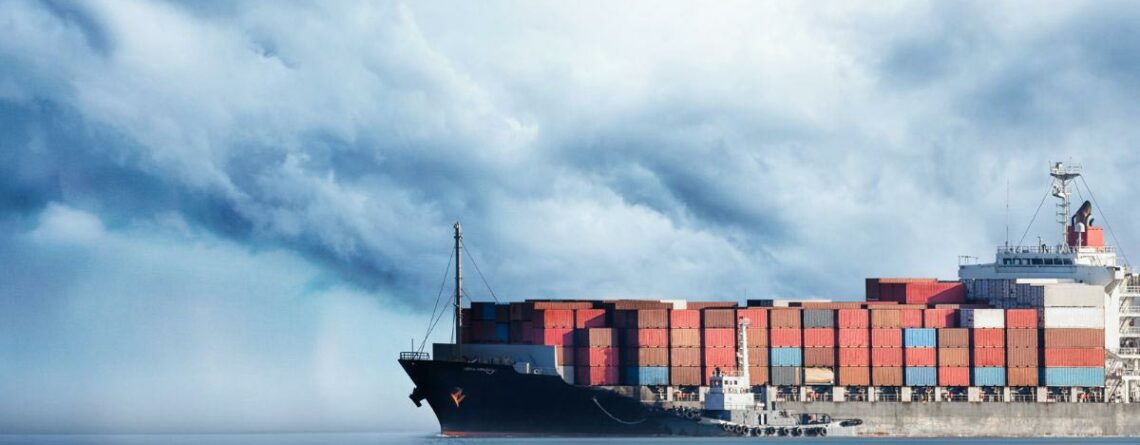What is Ocean Freight?
Ocean freight is the transportation of goods or products by sea, typically using cargo ships or vessels. It is a type of shipping that involves the movement of goods between ports and across oceans. People commonly use this mode of transportation for shipping large goods that are too heavy or bulky to transport by air or land.
Ocean freight involves several parties:-
The shipper (the person or company sending the goods)
The carrier (the shipping company or vessel operator)
The consignee (the person or company receiving the goods).
The cost of ocean freight typically depends on factors such as the weight and volume of the goods, the distance between ports, and the type of shipping service selected (such as full container load or less than container load).
Advantages of ocean freight
There are several advantages to using ocean freight as a mode of transportation:
- Cost-effectiveness: Compared to air or road transport, ocean freight is a cost-effective option for shipping large volumes of goods over long distances.
- Capacity: Ocean vessels’ large carrying capacities make them ideal for shipping bulk commodities.
- Accessibility: Ocean freight can access remote locations other modes cannot.
- Reliability: Ocean freight is reliable with regular schedules and routes, making it easier for businesses to plan and manage their supply chains.
- Environment friendly: Compared to other modes, ocean freight produces fewer emissions, making it a sustainable choice.
- Security: Ocean vessels are generally more secure than other modes of transportation, with strict security protocols in place to protect cargo from theft or damage.
Overall, ocean freight is a cost-effective, reliable, and environmentally friendly mode of transportation that can provide businesses with access to remote locations and large carrying capacities.
Ocean freight charges
Ocean freight charges refer to the cost of shipping goods by sea from one location to another. These charges can include various fees and costs associated with transporting goods by sea, such as:
- Freight charges: The primary cost of shipping is based on the weight or volume of the cargo and the distance being transported.
- Bunker surcharges: Additional charges for fuel, which can fluctuate based on market conditions.
- Terminal handling charges: Fees for the handling of cargo at the port of origin and destination.
- Documentation fees: Charges for preparing and processing shipping documents.
- Customs clearance charges: Fees associated with clearing customs in both the origin and destination countries.
- Insurance fees: The cost of insuring the cargo during transit.
Carefully review and understand all costs associated with shipping by sea before agreeing to a contract or quote, as the shipping company can vary the specific charges and fees depending on the route and other factors.
Duties of an ocean freight forwarder
An ocean freight forwarder is a professional who manages the logistics of shipping goods by sea. The duties of a Sea Freight forwarder include:
- Booking cargo: Ocean freight forwarders book cargo space, negotiate rates, and ensure timely shipment for clients.
- Documentation: The ocean freight forwarder handles all necessary documentation for international shipping, including bills of lading, customs declarations, and insurance forms.
- Customs clearance: Ocean freight forwarders are responsible for obtaining customs clearance and ensuring proper documentation.
- Packaging and labeling: A sea freight forwarder can help with packaging, labeling, and regulatory compliance for goods.
- Coordination of logistics: Sea freight forwarders handle the entire shipping process, from transportation to storage to final delivery.
- Freight consolidation: sea freight forwarders may consolidate multiple shipments into a single container to reduce costs.
- Risk management: sea freight forwarders must manage shipping risks, such as damage or transit delays, and provide insurance coverage as needed.
A sea freight forwarder manages the complex logistics of shipping goods by sea. They ensure that cargo reaches its destination safely, on time, and in compliance with regulations, playing a critical role in international trade.
Concludes
Overall, Sea Freight is a cost-effective and reliable method of shipping large quantities of goods or items that are not time-sensitive.
FAQs
Ans: Sea Freight is a shipping method that involves the transportation of goods by cargo ships. People often use this method of shipping for large quantities of goods or for items that are not time-sensitive.
Ans: Sea Freight can be used to transport a wide variety of goods, including raw materials, finished products, heavy equipment, and even cars and other vehicles.
Ans: The transit time of Sea Freight can vary depending on the shipping route and the distance to be traveled. It may take several weeks to reach the destination.
Ans: Some advantages of ocean freight include: it is cost-effective, as cargo ships can carry large amounts of goods at once. Ships can travel to multiple ports, making it cost-effective to ship goods to multiple destinations simultaneously. Sea shipping is reliable with scheduled arrivals/departures on set routes due to the predictable ocean environment.
Ans: Some disadvantages of Sea Freight include: the transit time can be longer than other shipping methods, making it less suitable for time-sensitive goods. Furthermore, weather conditions can affect cargo ships, causing delays or even cancellations of shipments due to storms or other hazards.



Leave a Reply